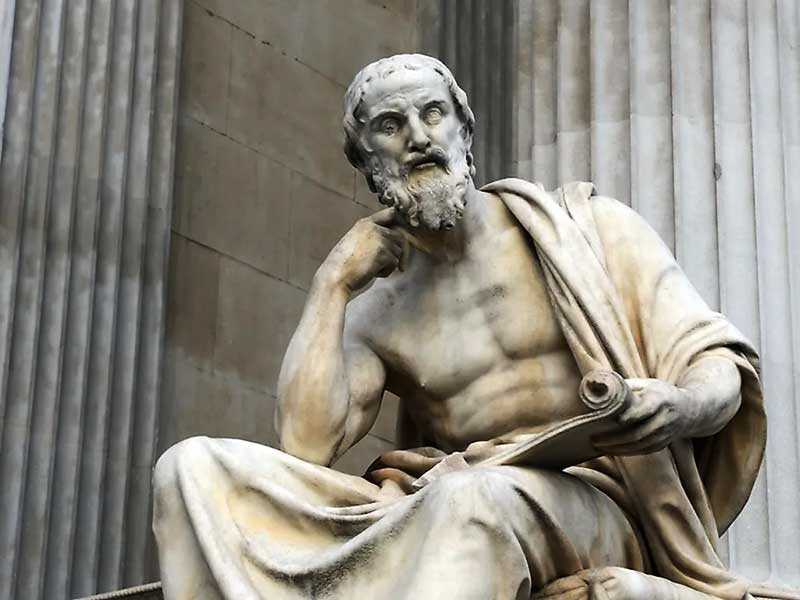Proud to introduce you to Herodotus
Herodotus
Herodotus, a Greek historian and geographer from the Greek city of Halicarnassus, is widely recognized as the father of history.
He was a pioneer from ancient Greek history, a widely traveled man who wrote incredible stories about the past.
History
He was called The Father of History by the Roman writer Cicero
DOB
Born around 484 B.C. He was from the city of Halicarnassus
Herodotus Histories
Tales of war, eyewitness travel writing, notes on flora and fauna
Literature
His greatest contribution to Greek literature was a series of books titled The Histories, published in the 5th century BCE.
This monumentally ambitious project charted real events from throughout history, including the lives of kings and queens, famous battles, and geographical topographies.
Herodotus is called the father of history for several reasons.
Invented the concept of history
Herodotus was the first person to write what we would consider real history.
He was the first to systematically investigate historical events and present them in a narrative form.
Traveled widely to gather his research
Herodotus traveled extensively throughout the Mediterranean world to gather information for his Histories.
He visited Egypt, Persia, and many Greek city-states, among other places.
Engaging narrator
Herodotus was an engaging narrator with a deep interest in the customs of the people he described.
He remains the leading source of original information not only for the Greco-Persian Wars but also for much of the history and culture of the ancient world.
Influence on later writers
His influence on later writers is immense.
The Roman writer and orator Cicero dubbed him the "father of history," and his work has been studied and admired by scholars and writers throughout the ages.
Quotes
Here are some notable quotes from him:
"In peace, sons bury their fathers. In war, fathers bury their sons." This quote reflects the brutal reality of war and its impact on families.
"Great deeds are usually wrought at great risks." Herodotus recognized that great achievements often require taking great risks.
"Men trust their ears less than their eyes." This quote highlights the importance of seeing things for oneself, rather than relying on hearsay or rumors.
Herodotus summary
His pioneering work in the field of historical writing has earned him the title of "father of history."
His Histories remain an important source of information about ancient cultures and societies, and his engaging narration and deep interest in the customs of the people he described continue to captivate readers today.

Content created by:
Alex Costin
Results driven services:
Digital Marketing
Need my expertise?
Contact me
No tracking cookies!
General information purposes only!
Business partners offers (backlinks):
Search Engine Optimisation agency:
SEO
Explore this city secret guide:
Barcelona
Outdoor recreational activity:
Canyoning
Wide range of financial services:
Chartered Accountant
Copyright © 2023 Alex Costin